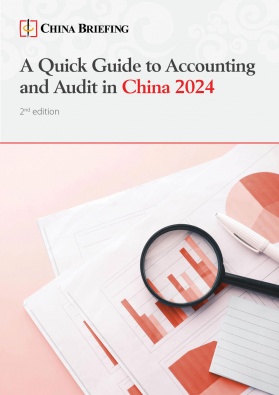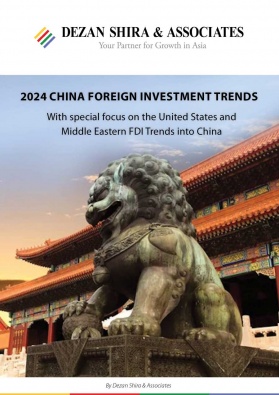China’s Three-Years Action Plan to Boost the Business Environment in the Greater Bay Area
Key proposals introduced in the plan
Facilitated access and fair competition
The plan outlines clear steps to enhance the market environment in the GBA. It emphasizes making it easier for businesses to enter and operate in the region by introducing special measures in key cooperation zones like Hengqin and Nansha. These measures also include assessing and improving the efficiency of market access in the nine mainland cities within the GBA.
To ensure fair competition, the plan addresses policies that might create differences for businesses from Hong Kong and Macao. It aims to level the playing field and establish mechanisms for fair competition reviews. Additionally, there’s a focus on reducing costs for businesses, including standardizing industry charges and improving financial practices. Moreover, it highlights a series of strategic market-oriented reforms, including (but not limited to):
- Simplified market entry procedures: To enhance operational efficiency and reduce bureaucratic hurdles, the plan prioritizes the simplification of market entry procedures. The objective is to create a business environment that is conducive to swift and effective market participation.
- Barrier elimination: Aiming to foster a competitive market order, the plan targets the removal of institutional barriers that impede the smooth allocation of factors. By eliminating these hindrances, the government seeks to promote a business ecosystem where market forces can efficiently determine the allocation of resources.
Moreover, on December 27, 2023, the NDRC and and the Ministry of Commerce (MoC) released guidelines to open market access in the Henqing Cooperation Zone, encompassing 20 measures spanning various sectors such as finance, culture, tourism, technological innovation, medical health, and professional services.
Digital empowerment and intellectual property rights protection
The plan focuses on advancing digital government initiatives to streamline administrative processes. This entails leveraging technology to enhance the efficiency and responsiveness of government functions, ensuring a more agile and digitally driven governance framework. Indeed, to facilitate accessibility and efficiency for businesses, the plan highlights the urgent need for upgrading government services through comprehensive digitalization. By embracing digital platforms, the aim is to create a seamless and transparent interface between the government and businesses, fostering a business-friendly environment.
To achieve this goal, the plan introduces the concept of “Internet + Supervision” as a pivotal strategy for elevating regulatory quality and efficiency. This approach leverages digital tools and connectivity to bolster regulatory oversight, ensuring a dynamic and responsive framework that aligns with evolving business landscapes. In the same domain, a key focus of the plan remains to fortify the protection of knowledge property rights. It advocates for the establishment of robust mechanisms for dispute resolution, creating a legal environment that safeguards intellectual property.
Creating an open business environment aligned with global standards
The plan seeks to align the GBA regulations with established international standards, focusing on key aspects such as:
- Harmonizing regulatory standards: Efforts are underway to align local regulations with established global standards, promoting transparency and consistency. This aims to establish a reliable regulatory framework for both domestic and international stakeholders.
- Boosting foreign investor attractiveness: To make the GBA more appealing to foreign investors, the plan prioritizes measures to simplify processes, remove barriers, and introduce incentives. The objective is to position the region as an attractive destination for foreign capital and expertise.
- Advancing cross-border services, financial markets, and standards: The plan outlines initiatives to drive progress in cross-border services, financial markets, and professional standards. By adopting international best practices, the GBA aims to become a hub for seamless global interactions, fostering strong economic and financial collaborations.
Enhancing attractiveness for inbound investment
The plan sets forth a comprehensive strategy to bolster the region’s appeal to foreign investors. A key element involves the implementation of the Regional Comprehensive Economic Partnership (RCEP) with a strong emphasis on high-quality execution. This aligns with global economic and trade standards, drawing inspiration from agreements like the Comprehensive and Progressive Agreement for Trans-Pacific Partnership (CPTPP) and the Digital Economy Partnership Agreement (DEPA). The plan further advocates stress-testing mechanisms, specifically designed to drive breakthroughs in institutional innovations. With a vision of fostering high-level liberalization and facilitation of investment, the GBA aims to attract investments from developed countries in fields including (but not limited to):
- Advanced manufacturing;
- Modern services; and
- Strategic emerging industries.
Fostering financial markets connectivity
The plan emphasizes a gradual expansion of openness in the financial sector to Hong Kong and Macao. Measures include supporting practical collaboration between the Shenzhen Stock Exchange, Guangzhou Futures Exchange, and the Hong Kong Stock Exchange. Accelerating the “Bond Connect” program, which facilitates the two-way opening of the bond market.
The plan explores regional pilot programs in the GBA for cross-border credit cooperation, aiming to establish a mechanism for mutual recognition of credit products among Guangdong, Hong Kong, and Macao, thereby enhancing cross-border financing and credit services. Moreover, the plan extends support to the operation of financial institutions from Hong Kong and Macao in the GBA, promoting the construction of an insurance service center, and facilitating eligible institutions from Hong Kong and Macao to issue financial bonds and corporate credit bonds in mainland China.
Facilitating cross-border customs and visa arrangements
A cornerstone of the plan involves enhancing the convenience of cross-border customs procedures. Special considerations are extended to foreign nationals holding permanent residency cards in Hong Kong and Macao, facilitating their involvement in business negotiations and participation in science, education, culture, and health exchanges across the nine mainland cities of the GBA.
This is achieved through the provision of streamlined procedures for long-term visa applications. In addition, the plan places strong emphasis on improving visa arrangements for residents of the nine mainland cities of the GBA conducting business, research, and professional services in Hong Kong and Macao.
To streamline customs processes, innovative clearance models like “one location, two inspections” and “cooperative inspection for single-release” are encouraged at various GBA ports. The ultimate goal is to cater to evolving demands by extending “24-hour customs clearance” to more ports.
Promoting cross-border professional practices and standardization
The plan strongly advocates for uniformized professional practices and industry standards across borders. This involves optimizing the application and review process for professional titles of Hong Kong and Macao professionals within the GBA, introducing supportive measures in key sectors and expanding the pilot program for joint venture law firms in Guangdong, Hong Kong, and Macao.
Additionally, the plan aims to establish a standard confirmation mechanism within the GBA and promote “Bay Area standards” in areas like cuisine, domestic services, and elderly care. It further supports extensive collaboration among certification bodies in Guangdong, Hong Kong, and Macao to create a certification alliance spanning sectors such as food and agricultural products, consumer goods, high-end equipment manufacturing, and services.
Creating opportunities for Hong Kong and Macao residents in Guangdong
The plan aims to enhance the quality of life and opportunities for residents from Hong Kong and Macao in Guangdong:
- Broadening employment and entrepreneurial prospects for residents from Hong Kong and Macao.
- Accelerating the eligibility of Chinese citizens among Hong Kong and Macao residents to apply for civil service positions in the GBA.
- Establishing a long-term platform for publishing recruitment information in Hong Kong and Macao, regularly releasing catalogs of urgently needed talents in the GBA.
- Advancing the construction of incubation systems for innovation and entrepreneurship for young talents from Hong Kong and Macao, providing more employment opportunities.
- Supporting service providers from Hong Kong and Macao to establish and operate elderly care service institutions in Guangdong.
- Deepening initiatives such as “Bay Area Social Security Access” and “Hong Kong-Macao Medical Equipment Access,” exploring cross-border settlement of medical insurance in the GBA.
- Advancing the application convenience of travel documents for residents from Hong Kong and Macao in administrative and public services and the use of the internet.
- Promoting the gradual optimization and reduction of communication fees in the GBA by basic telecommunications enterprises.
Why invest in the Greater Bay Area?
Over the last decade, investor attention has been attracted to the GBA, notably after the Chinese government announced the Outline Development Plan for Guangdong-Hong Kong-Macao Greater Bay Area in 2019. According to the Annual Hong Kong Investor Survey Report 2018, approximately 40 percent of respondents had already expressed interest in investing in GBA cities, with a focus on Shenzhen and Guangzhou. Connectivity stands out as a key factor in positioning the GBA as a globally competitive mega-region.
With significantly shorter travel times between major cities compared to other mega-regions, such as the ability to travel from Hong Kong to Guangzhou in under an hour, the GBA enjoys a strategic advantage. Access to a skilled labor force is also identified as crucial for sustainable growth in the GBA. The region has now prioritized the development of a large pool of skilled workers.
This appears clear in initiatives such as the implementation of the preferential individual income tax (IIT) subsidy for foreign talent living in the nine mainland cities of the GBA.
Under this preferential policy, eligible foreign talent can have a portion of IIT paid on their taxable income that is in excess of 15 percent subsidized by the local government.
This flagship policy was officially extended until 2027, demonstrating the region’s commitment to attracting highly skilled individuals. Improved infrastructure is another key factor making the GBA attractive to the eyes of businesses and investors.
A recent survey conducted by RICS highlights how 40 percent of respondents from Hong Kong express plans to relocate or expand to other GBA cities. This is forecasted to drive office demand in the GBA to approximately 21 million square meters by 2028, with emerging office markets such as Nanshan and Qianhai offering more affordable alternatives. In conclusion, investing in the GBA positions businesses and investors at the forefront of an economic powerhouse in the making. The strategic development outlined in the GBA’s ambitious plans opens avenues for growth and collaboration, making it a compelling destination for those seeking long-term opportunities in the heart of China’s economic evolution.
About Us
China Briefing is written and produced by Dezan Shira & Associates. The practice assists foreign investors into China and has done so since 1992 through offices in Beijing, Tianjin, Dalian, Qingdao, Shanghai, Hangzhou, Ningbo, Suzhou, Guangzhou, Dongguan, Zhongshan, Shenzhen, and Hong Kong. Please contact the firm for assistance in China at china@dezshira.com.
Dezan Shira & Associates has offices in Vietnam, Indonesia, Singapore, United States, Germany, Italy, India, and Russia, in addition to our trade research facilities along the Belt & Road Initiative. We also have partner firms assisting foreign investors in The Philippines, Malaysia, Thailand, Bangladesh.
- Previous Article China’s Revised Measures for the Administration and Registration of Formula Foods for Special Medical Purposes
- Next Article China Issues Special Measures to Ease Market Access in the Hengqin Cooperation Zone








